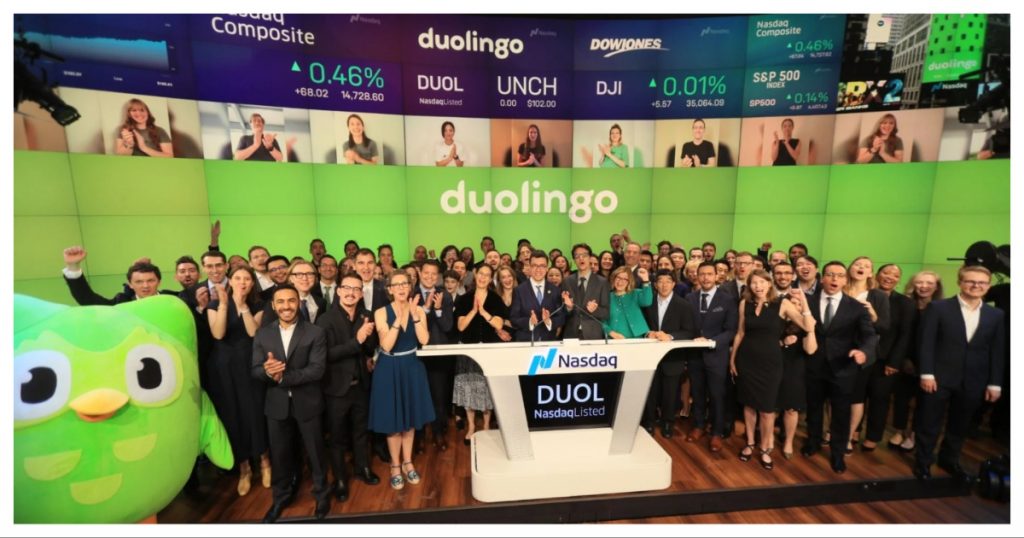Language learning platform Duolingo has announced a transformative shift in its operational model, declaring itself an AI-first organisation. In a bold move, the company will gradually phase out human contractor roles, replacing them with artificial intelligence tools that will now power everything from content creation to performance reviews and hiring practices.
AI to Replace Human Contractors at Duolingo

In an internal memo shared by CEO Luis von Ahn and later posted on LinkedIn, Duolingo confirmed that the company will now rely heavily on AI to automate repetitive tasks that were previously handled by human contractors. “We’ll gradually stop using (human) contractors to do work that AI can handle,” said von Ahn, underscoring that AI will be central to how the company functions going forward.
This announcement places Duolingo in the growing league of companies prioritizing AI-driven efficiency over traditional manpower. The firm insists the transition isn’t merely a cost-cutting measure but a way to overcome creative bottlenecks and scale operations faster.
AI Integration Across Duolingo’s Workflow

According to the CEO, Duolingo is embedding AI deeply across its departments — from product development and learning content generation to employee performance assessments. New tools will accelerate course creation, a process that von Ahn says previously took years. With AI, Duolingo hopes to roll out new language content at unprecedented speed.
The company is also incorporating AI into the hiring process. As von Ahn noted, “AI use will be part of what we look for in hiring,” making it clear that Duolingo’s workforce must now adopt AI as a core competency. In fact, headcount increases will only occur when automation is insufficient.
Not Just Duolingo: The Industry-Wide AI Shift
Duolingo isn’t alone. Earlier this year, Shopify CEO Tobias Lütke also implemented an AI-first strategy, requiring teams to prove that their tasks couldn’t be done by AI before hiring more staff. Lütke referred to AI as a “game-changer” and now expects AI usage to be standard across his organization.
Impact on Jobs and Duolingo’s Future
While Duolingo claims the move is designed to enhance creativity by offloading mundane tasks to machines, it’s expected to lead to reduced headcount among teams whose work can be replaced by AI. However, existing employees will be offered AI training and mentorship programs to adapt to the new workflow and remain relevant in an increasingly automated environment.
This transformation mirrors Duolingo’s earlier pivot in 2012 to a mobile-first approach, a decision that led to exponential growth. By becoming AI-first in 2025, Duolingo hopes to replicate that success, but this time by leaning on the speed and scalability offered by artificial intelligence.
Final Thoughts
Duolingo’s shift to an AI-first model marks a watershed moment for EdTech companies and signals a broader industry trend. While the efficiency gains are undeniable, the impact on human employment — especially contract work — cannot be overlooked. As Duolingo charts this new course, the education sector and tech community will be watching closely.
Explore more: How AI Is Reshaping Jobs in the Education Sector









